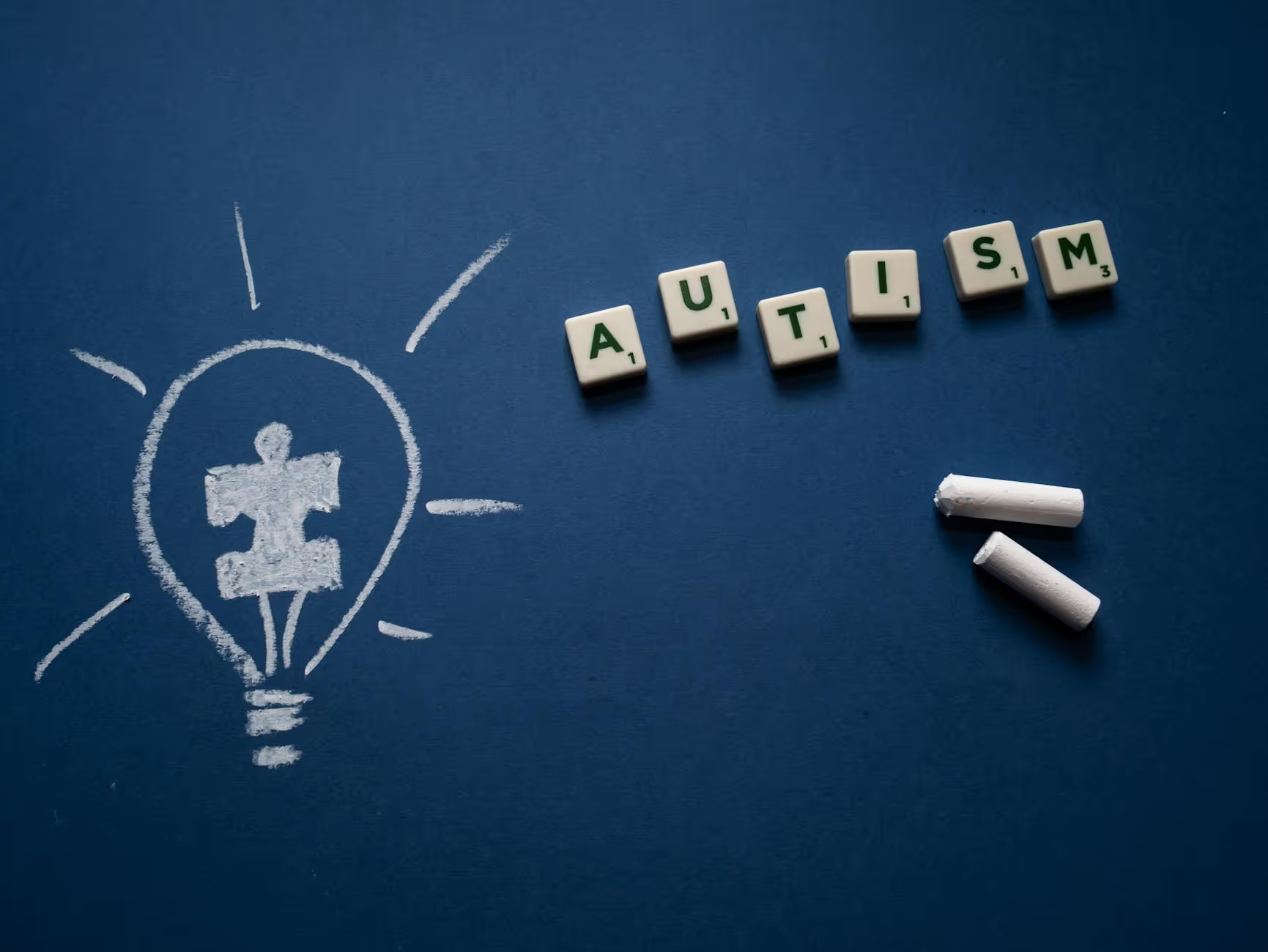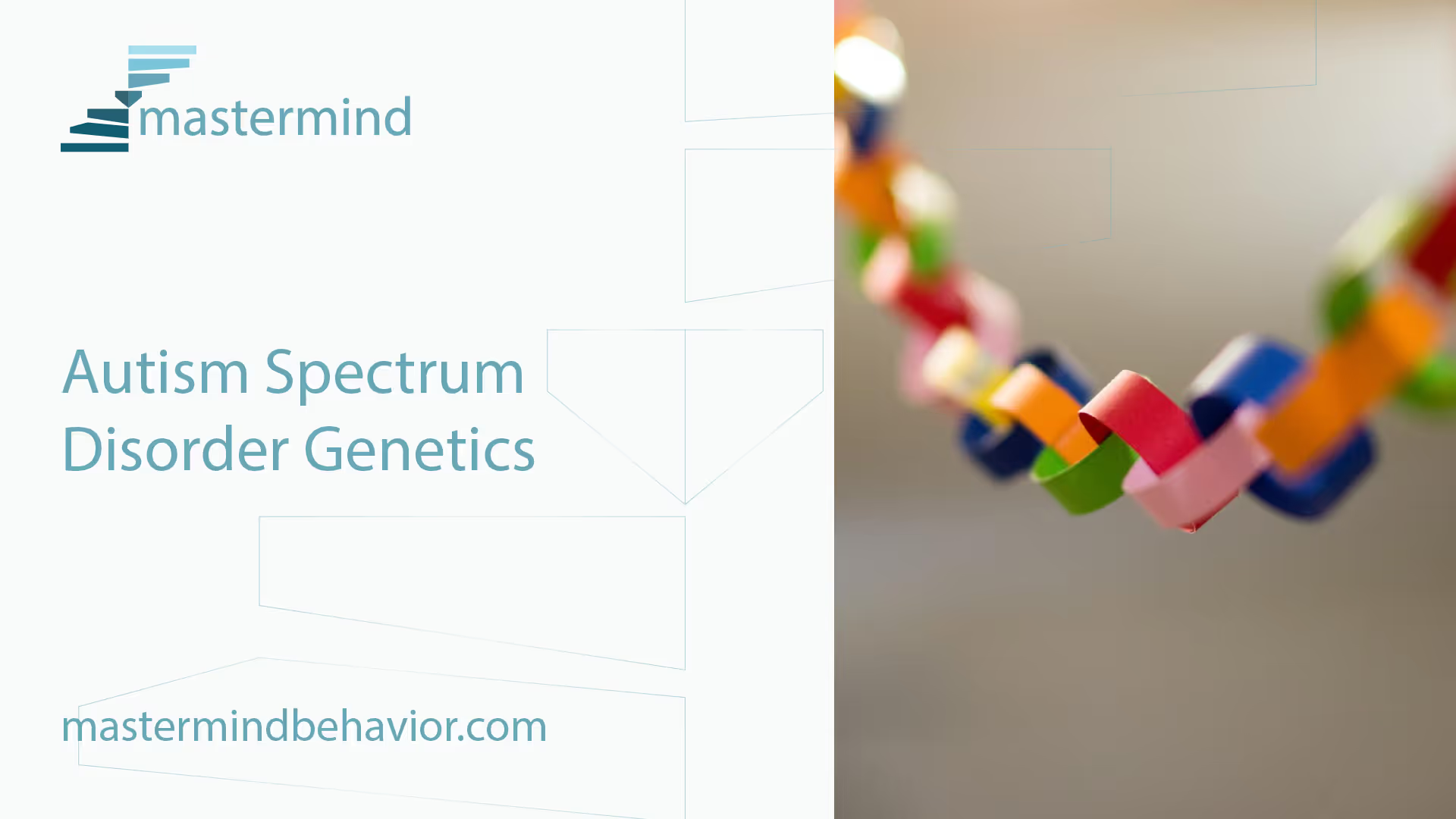Autism Spectrum Disorder Genetics


Understanding Autism Genetics
The genetics of Autism Spectrum Disorder (ASD) encompasses a complex understanding of how hereditary factors contribute to the condition. This section will explore the genetic basis of ASD as well as the impact of heritability on the risk of developing this disorder.
Genetic Basis of Autism Spectrum Disorder
Autism Spectrum Disorder is influenced by multiple genetic factors. Twin studies estimate that about 90% of the variation in the phenotype of ASD is attributed to genetic factors [1]. Genetic investigations have identified the role of numerous gene variants associated with ASD. These variations may affect not only the risk of developing autism but also relate to other conditions.
The interactions between various genes and environmental factors underscore the complexity of autism genetics. Some genes associated with autism may be involved in synaptic functions, cellular signaling, and neurodevelopment. Understanding these genetic contributions is crucial for parents looking into the potential genetic causes of autism in their children. For detailed information, you can read about genetic causes of autism.
Variant TypeGene Variants IdentifiedPercentage of CasesDeletions~200Approximately 10-15%Duplications~100Approximately 5-10%Point Mutations200+Varies widely
Impact of Heritability on ASD Risk
The heritability of autism significantly shapes the likelihood of developing the disorder within families. High heritability estimates reflect an increased risk for siblings and offspring of individuals diagnosed with ASD, suggesting a strong genetic component.
Research indicates large-scale sampling reveals an extensive overlap of risk loci between ASD and other significant psychiatric disorders, pointing to shared genetic susceptibility [2]. This information can guide parents in understanding the patterns of heredity and the importance of consulting with healthcare professionals.
Parents may consider seeking genetic counseling for autism to receive specialized guidance tailored to their family history and specific concerns. By understanding these hereditary implications, parents can better navigate the complexities of autism and its genetic underpinnings. For additional resources, families may also explore options for genetic testing for autism to gain deeper insights into their child's genetic makeup.
Genetic Variations in Autism
Understanding genetic variations associated with Autism Spectrum Disorder (ASD) is crucial for parents of children with autism. These variations can be categorized into two main areas: chromosomal abnormalities and the roles of specific genes and syndromes.
Chromosomal Abnormalities in ASD
Research indicates that an estimated 50% of individuals with ASD exhibit chromosomal abnormalities, such as chromosome deletions and duplications. Some common examples include:
These chromosomal variations can contribute to various identified syndromes, such as Williams syndrome, Phelan-McDermid syndrome, and Shprintzen velocardiofacial syndrome, or single gene disorders.
In early genetic studies, abnormalities were noted on specific chromosomes such as:
ChromosomeKey Abnormality7qVarious mutations1pGenetic linkage to ASD3qCandidate gene variations16pPatterns associated with autism15qKnown for multiple syndromes
These findings help illuminate specific regions of the genome that may be involved in ASD, paving the way for further investigation into candidate genes within these areas.
The Role of Genes and Syndromes
Numerous biological pathways and genes are linked to the development of Autism Spectrum Disorder. Notable examples include synaptic genes such as NLGN3, NLGN4X, SHANK2, and SHANK3. Additionally, copy number variations (CNVs) have highlighted the significance of synaptic function in autism. These variations often indicate abnormalities in how synapses are formed and maintained, which can contribute to the neurodevelopmental aspects of autism [4].
In recent studies, abnormal spine density in postmortem ASD brain tissue has been identified. Findings reveal that increased spine density on apical dendrites of pyramidal neurons is linked to cognitive function. This hyperconnectivity within local brain circuits and hypoconnectivity between broader brain regions suggests that structural changes at the cellular level may contribute to the sociocognitive challenges observed in children with ASD [5].
Understanding these genetic variations is important for parents seeking to navigate the complexities of autism. For those interested in exploring this further, resources such as genetic testing for autism and genetic counseling for autism can provide valuable information and support.
Genetic Syndromes and ASD
Understanding the relationship between genetic syndromes and Autism Spectrum Disorder (ASD) provides insight into the complexities of autism genetics. Certain genetic abnormalities, including chromosome deletions and duplications, play a significant role in the diagnosis and treatment of individuals with ASD.
Chromosome Deletions and Duplications
Chromosome deletions and duplications are significant genetic alterations that can be present in individuals with autism. Studies suggest that about 50% of those diagnosed with ASD may exhibit these abnormalities, which include specific regions such as 15q11.2, BP1-BP2, 16p11.2, and 15q13.3. These genetic variations can affect clinical evaluations, diagnoses, and treatment interventions:
Chromosomal AbnormalityDescription15q11.2Linked to cognitive and behavioral challengesBP1-BP2Associated with developmental delays16p11.2Implicated in various neurodevelopmental disorders15q13.3Related to increased risk of ASD and other disorders
This information emphasizes the importance of genetic testing for autism in understanding an individual's unique genetic profile and potential treatment pathways. Specific chromosome anomalies have been linked with syndromes that further complicate the spectrum of ASD.
Syndromes Associated with Autism
Several identified genetic syndromes are associated with autism, which helps in identifying and managing ASD. Some notable syndromes include:
Understanding these syndromes assists parents and caregivers in finding suitable interventions and support systems, as outlined in resources about genetic causes of autism. Genetic counseling can provide more insights into family planning and management options. This ability to link genetic profiles with broader contexts of neurodevelopment makes innovative approaches like autism gene therapy a possibility for the future.
By recognizing the connections between genetic syndromes and autism, parents can navigate the complexities of autism spectrum disorder genetics more effectively, ensuring tailored strategies are developed for support and treatment.
Influence of Genetic Factors
Understanding the influence of genetic factors on Autism Spectrum Disorder (ASD) includes looking at the behavioral and psychiatric conditions often associated with ASD, as well as co-occurring disorders that may complicate the diagnosis and treatment.
Behavioral and Psychiatric Conditions
Children with ASD frequently present with a range of behavioral and psychiatric conditions. These co-occurring conditions can include anxiety disorders, attention deficit hyperactivity disorder (ADHD), and mood disorders. Approximately 70% of individuals with autism may also experience additional psychiatric conditions, thus highlighting the need for a comprehensive approach to diagnosis and treatment.
ConditionPrevalence (%)Anxiety Disorders40-50ADHD30-50Mood Disorders20-30
Pharmacogenetics testing is being utilized to help tailor the selection of psychotropic medications for these conditions, ensuring better management of challenging behaviors commonly seen in individuals with ASD [3].
Co-occurring Disorders in ASD
Co-occurring disorders can complicate the picture for children with ASD. These disorders can manifest alongside autism, influencing behavior and overall health. Examples of common co-occurring disorders include gastrointestinal issues, sleep disturbances, and sensory processing disorders. Each of these conditions requires specialized attention, as they can impact the individual's quality of life.
The prevalence of co-occurring disorders in children with autism is significant, as illustrated below:
Co-occurring DisorderPrevalence (%)Gastrointestinal Issues30-50Sleep Disturbances40-80Sensory Processing Disorders50-90
Research has suggested that certain biological pathways related to synaptic function are crucial factors in autism and its associated conditions. Genetic mutations in genes such as NLGN3, NLGN4X, SHANK2, and SHANK3 have been linked to abnormal synapse formation, which may contribute to both the core symptoms and co-occurring disorders seen in ASD [4].
Understanding these genetic influences enables parents to seek appropriate genetic counseling for autism and consider genetic testing for autism to assess potential risks and management strategies for their children.
Advances in Genetic Technology
Technological advancements in genetics have significantly impacted the understanding and management of Autism Spectrum Disorder (ASD). These innovations have facilitated deeper insights into the genetic factors associated with autism.
Next-Generation Sequencing
Next-Generation Sequencing (NGS) represents a cutting-edge approach in genetic research. It provides researchers with the ability to sequence DNA rapidly and accurately, revealing a wealth of information about genetic variations linked to autism. NGS has been particularly useful in identifying hundreds of risk genes associated with autism, beyond the more common genetic causes.
By utilizing NGS, medical professionals can conduct comprehensive genetic testing, leading to more precise diagnoses and tailored treatment options for children with ASD. The following table summarizes the benefits of NGS in autism genetics:
Benefit of NGSDescriptionHigh ThroughputAllows for the examination of multiple genes simultaneously.Enhanced AccuracyImproves the precision of identifying genetic variants.Time EfficiencyReduces the time needed to obtain genetic results.Comprehensive AnalysisCovers extensive genetic regions, providing more information about risk factors.
These capabilities of NGS play a vital role in advancing the science of genetic testing for autism and understanding underlying genetic causes.
Bioinformatics in Neurodevelopment
Bioinformatics has emerged as a crucial field in the study of autism genetics. It involves the analysis and interpretation of biological data, particularly genomic data. Bioinformatics tools help researchers manage the enormous datasets generated by sequencing technologies like NGS.
The integration of bioinformatics allows for the identification of patterns and correlations within genetic data. This analysis can lead to the discovery of novel genetic variants associated with ASD, enhancing the understanding of how these genetic differences contribute to neurodevelopmental disorders [2].
Table summarizing the contributions of bioinformatics:
ContributionImpactData AnalysisFacilitates processing and interpretation of genetic data.Variant IdentificationHelps pinpoint specific genetic mutations linked to ASD.Database DevelopmentOrganizes genetic information for easier accessibility and use in research.Predictive ModelingAllows for the prediction of genetic profiles that indicate ASD susceptibility.
Through these advanced techniques, parents of children with autism can gain insights into the genetic factors impacting their child's condition, paving the way for informed decisions regarding genetic counseling for autism and potential interventions such as autism gene therapy. These advancements underscore the significance of genetics in understanding and addressing Autism Spectrum Disorder.
Pharmacogenetics in Autism
Understanding the relationship between genetics and medications is crucial for parents of children with Autism Spectrum Disorder (ASD). Pharmacogenetics plays a significant role in guiding treatment options and customizing approaches based on individual genetic profiles.
Personalized Medication for ASD
Personalized medication involves tailoring treatment plans to suit each child's unique genetic makeup. This approach has gained traction, especially with the advancements in pharmacogenetics testing, which can help guide the selection of psychotropic medications. These tests analyze how specific genes affect a person’s response to medications, allowing healthcare providers to recommend treatments that are more likely to be effective and have fewer side effects [3].
Parents can benefit from this knowledge by discussing pharmacogenetics testing with healthcare providers. The goal is to address challenging behaviors or co-occurring psychiatric conditions commonly observed in children with ASD, such as hyperactivity, aggression, or mood disorders. Through a personalized approach, treatment can be more effective in managing these symptoms.
Benefits of Personalized MedicationTailored treatment plans according to genetic profilesImproved efficacy of medicationsReduced risk of adverse side effectsEnhanced monitoring of treatment outcomes
Psychotropic Medications and ASD
Psychotropic medications play a vital role in the neuropsychopharmacological treatment of ASD. These medications aim to address target symptoms such as hyperactivity, impulsivity, inattention, aggression, self-injury, and mood disorders. When used appropriately, they can significantly enhance the quality of life for children experiencing these challenges.
Selecting the right medication is crucial and should be guided by pharmacogenetics testing. This testing helps identify which medications may work best for each child based on their genetic profile. Common classes of psychotropic medications include stimulants, antidepressants, and antipsychotics, each targeting various symptoms associated with ASD.
Common Psychotropic Medications for ASDTarget SymptomsStimulantsHyperactivity, inattentionAntidepressantsMood disorders, anxietyAntipsychoticsAggression, irritability
For parents interested in understanding the genetic factors related to their child's autism, exploring options such as genetic testing for autism and genetic counseling for autism can provide valuable insights. Additionally, emerging therapies like autism gene therapy represent the cutting edge of treatment possibilities in the realm of autism spectrum disorder genetics.
References
[2]:
[3]:
[4]:
[5]:
[6]:
[7]:
Recent articles

How Behavioral Therapy Helps Improve Peer Relationships in Children
Building Bridges: The Role of Behavioral Therapy in Enhancing Children's Social and Peer Relationships

The importance of goal-setting in ABA therapy
Maximizing Outcomes Through Strategic Goal-Setting in ABA Therapy

How to Create a Structured Environment for ABA Therapy at Home
Building a Supportive Home for Autism Therapy Success

The impact of peer modeling on skill development
Harnessing Peer Influence to Enhance Learning and Development

How to Teach Conflict Avoidance Strategies to Children with Autism
Fostering Harmony: Strategies for Teaching Conflict Prevention to Children with Autism

How to Foster Independence in Children with Autism
Empowering Growth: Strategies for Building Autonomy in Children with Autism


